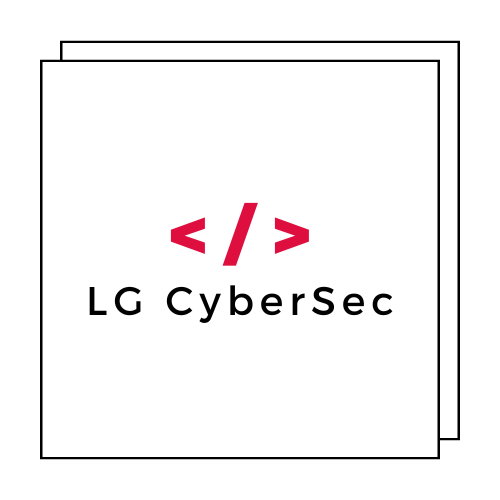In one of the most significant data breaches of 2025, Vietnam’s Credit Information Center (CIC) has fallen victim to a devastating cyber attack that has potentially compromised the personal and financial information of over 160 million individuals. This massive breach, reportedly executed by the notorious hacking group ShinyHunters, serves as a stark reminder of the critical importance of robust cybersecurity measures for both businesses and consumers in today’s digital landscape.
The implications of this Vietnam credit bureau hack extend far beyond national borders, offering crucial lessons for small and medium-sized businesses (SMBs) and individual consumers worldwide about the evolving nature of cyber threats and the urgent need for comprehensive data protection strategies.
Understanding the Scale of the Vietnam Credit Bureau Breach
The Credit Information Center (CIC), operating under Vietnam’s State Bank, serves as the country’s official public credit registry. This institution is responsible for collecting, processing, and maintaining comprehensive financial records for the vast majority of Vietnam’s population. The breach has potentially exposed sensitive information including:
- Personal identification numbers and identity documents
- Credit histories and financial records
- Banking information and account details
- Employment records and income data
- Contact information including addresses and phone numbers
What makes this breach particularly concerning is the centralized nature of the CIC’s operations. Unlike distributed systems where data is spread across multiple platforms, this single point of failure has created a catastrophic exposure affecting nearly the entire Vietnamese population. For businesses operating internationally or those with Vietnamese customers, this incident highlights the cascading risks associated with third-party data processors and the importance of understanding your data’s full journey.
The timing of this breach is especially significant as it occurs during a period of increased digitization across Southeast Asia, where more businesses and consumers are moving their financial activities online without adequate security awareness.
The ShinyHunters Connection: Understanding Modern Cyber Criminal Operations
ShinyHunters, the group allegedly behind this massive breach, represents a new generation of sophisticated cybercriminal organizations that specifically target high-value databases containing personal and financial information. This group has been linked to numerous high-profile breaches across various industries, demonstrating their advanced capabilities and persistent threat to organizations worldwide.
What sets modern hacking groups like ShinyHunters apart is their professional approach to cybercrime. They operate like legitimate businesses, complete with:
- Specialized roles including researchers, penetration testers, and sales personnel
- Advanced toolsets for reconnaissance, exploitation, and data exfiltration
- Established marketplaces for selling stolen data to other criminals
- Long-term strategies for maintaining access to compromised systems
For SMBs, understanding these threat actors’ methodologies is crucial for developing effective defense strategies. These groups often begin their attacks by targeting smaller, less secure organizations within a supply chain before moving on to their ultimate high-value targets.
The professional cybersecurity assessment becomes essential in identifying vulnerabilities that could be exploited by such sophisticated threat actors before they can cause significant damage to your business operations and customer trust.
Immediate Risks and Long-Term Consequences for Businesses and Consumers
The Vietnam credit bureau hack creates both immediate and long-term risks that extend well beyond the affected individuals. For businesses, particularly those operating in the financial services sector or handling customer financial data, this incident serves as a wake-up call about the potential consequences of inadequate cybersecurity measures.
For Small and Medium-Sized Businesses:
SMBs face unique challenges in the wake of such large-scale breaches. The exposed data can be used for various fraudulent activities that may indirectly impact businesses through:
- Increased fraud attempts against customer accounts
- Identity theft schemes targeting business owners and employees
- Social engineering attacks using compromised personal information
- Regulatory scrutiny and compliance challenges
The financial impact can be substantial, with studies showing that data breaches cost SMBs an average of $2.98 million per incident, according to IBM’s Cost of a Data Breach Report. However, the reputational damage and loss of customer trust often prove even more devastating in the long run.
For Individual Consumers:
Individual consumers affected by the Vietnam breach face immediate risks including identity theft, financial fraud, and privacy violations. The comprehensive nature of the exposed data means criminals have access to enough information to:
- Open fraudulent accounts in victims’ names
- Access existing financial accounts
- Apply for loans or credit using stolen identities
- Conduct targeted phishing campaigns
The long-term consequences can persist for years, as stolen personal information remains valuable to criminals long after the initial breach occurs.
Critical Cybersecurity Lessons for SMBs
The Vietnam credit bureau hack offers several critical lessons that SMBs must internalize to protect themselves and their customers from similar threats. These lessons extend beyond basic security hygiene to encompass comprehensive risk management strategies.
Implementing Multi-Layered Security Approaches:
Modern cyber threats require sophisticated defense strategies that go beyond simple antivirus software and firewalls. SMBs should implement:
- Zero-trust security models that verify every user and device
- Regular security assessments and vulnerability testing
- Employee training programs focused on threat recognition
- Incident response plans for rapid breach containment
The comprehensive security audit services can help identify vulnerabilities in your current security posture and provide actionable recommendations for improvement.
Data Governance and Asset Management:
Understanding what data you collect, where it’s stored, and how it’s protected is fundamental to effective cybersecurity. SMBs should:
- Conduct regular data audits to identify sensitive information
- Implement data classification systems based on sensitivity levels
- Establish retention policies to minimize data exposure
- Monitor third-party access to customer information
This systematic approach to data governance helps organizations understand their risk exposure and prioritize security investments effectively.
Third-Party Risk Management:
The Vietnam breach highlights the importance of understanding third-party risks. SMBs should evaluate their vendors’ security practices and establish clear contractual obligations regarding data protection. This includes regular security assessments of key suppliers and service providers.
Essential Protection Strategies for Consumers
While consumers cannot control institutional security practices, they can take proactive steps to protect themselves from the consequences of large-scale breaches like the Vietnam incident. These strategies focus on reducing exposure and detecting fraudulent activity quickly.
Immediate Response Actions:
Consumers should take immediate action to protect themselves, including:
- Monitoring financial accounts for unusual activity
- Placing fraud alerts on credit reports
- Changing passwords for financial and sensitive accounts
- Enabling two-factor authentication wherever possible
Regular monitoring becomes even more critical in the aftermath of large-scale breaches, as criminals often sell stolen data in batches over extended periods.
Long-Term Security Practices:
Building resilient personal cybersecurity requires ongoing vigilance and the adoption of best practices:
- Using unique passwords for each account with a password manager
- Regular credit report reviews to detect unauthorized activity
- Limiting information sharing on social media platforms
- Staying informed about emerging threats and scams
Consumer education plays a crucial role in reducing the overall impact of data breaches, as informed individuals are better equipped to recognize and respond to potential threats.
Regulatory and Compliance Implications
The Vietnam credit bureau hack also highlights the evolving regulatory landscape surrounding data protection and breach notification requirements. Organizations worldwide are facing increasing pressure to demonstrate compliance with various data protection regulations, including GDPR, CCPA, and emerging legislation in Southeast Asia and other regions.
For SMBs, understanding these regulatory requirements is crucial for avoiding significant fines and legal consequences. Key compliance considerations include:
- Breach notification timelines and requirements
- Data subject rights and response procedures
- Privacy impact assessments for new systems or processes
- Cross-border data transfer restrictions and requirements
The compliance consulting services can help organizations navigate these complex requirements and maintain regulatory adherence while building robust security practices.
Building Cyber Resilience: Moving Forward After Major Breaches
The Vietnam credit bureau hack serves as a powerful reminder that cybersecurity is not a one-time investment but an ongoing process of adaptation and improvement. Organizations and individuals must develop cyber resilience – the ability not just to prevent attacks, but to quickly recover and learn from security incidents.
For businesses, cyber resilience involves:
- Regular testing of security systems and response procedures
- Continuous monitoring for emerging threats and vulnerabilities
- Investment in security awareness training for all employees
- Development of crisis communication plans for breach scenarios
The modern threat landscape requires organizations to assume that breaches will occur and prepare accordingly. This shift from prevention-only strategies to comprehensive resilience planning represents a fundamental evolution in cybersecurity thinking.
Industry collaboration also plays a crucial role in building collective cyber resilience. Sharing threat intelligence, best practices, and lessons learned from incidents like the Vietnam breach helps the entire business community better defend against similar attacks.
Conclusion: Turning Crisis into Opportunity
The Vietnam Credit Information Center breach affecting over 160 million individuals represents a watershed moment in cybersecurity awareness for both businesses and consumers. While the immediate impact is undoubtedly significant, this incident provides valuable lessons that can strengthen our collective cyber resilience.
For SMBs, the breach underscores the critical importance of implementing comprehensive security measures that go beyond basic protective technology. Success in the modern threat landscape requires a holistic approach combining advanced technical controls, robust governance processes, employee education, and strategic partnerships with cybersecurity professionals.
Individual consumers must also recognize their role in maintaining cybersecurity hygiene and take proactive steps to protect their personal information. The interconnected nature of our digital economy means that every person’s security practices contribute to the overall resilience of the system.
As we move forward, organizations and individuals alike must view cybersecurity not as a cost center or inconvenience, but as a fundamental enabler of digital trust and economic growth. The companies and individuals who invest in robust cybersecurity practices today will be best positioned to thrive in tomorrow’s increasingly digital economy.
At LG CyberSec, we understand the complex challenges facing SMBs and consumers in today’s threat landscape. Our comprehensive cybersecurity solutions are designed to provide enterprise-grade protection at a scale and price point appropriate for growing businesses. Don’t wait for a breach to occur – take action today to protect your organization and customers from the evolving cyber threats exemplified by incidents like the Vietnam credit bureau hack.
Contact LG CyberSec today to schedule a comprehensive security assessment and discover how we can help strengthen your defenses against sophisticated cyber threats. Your customers’ trust and your business’s future depend on the security decisions you make today.

